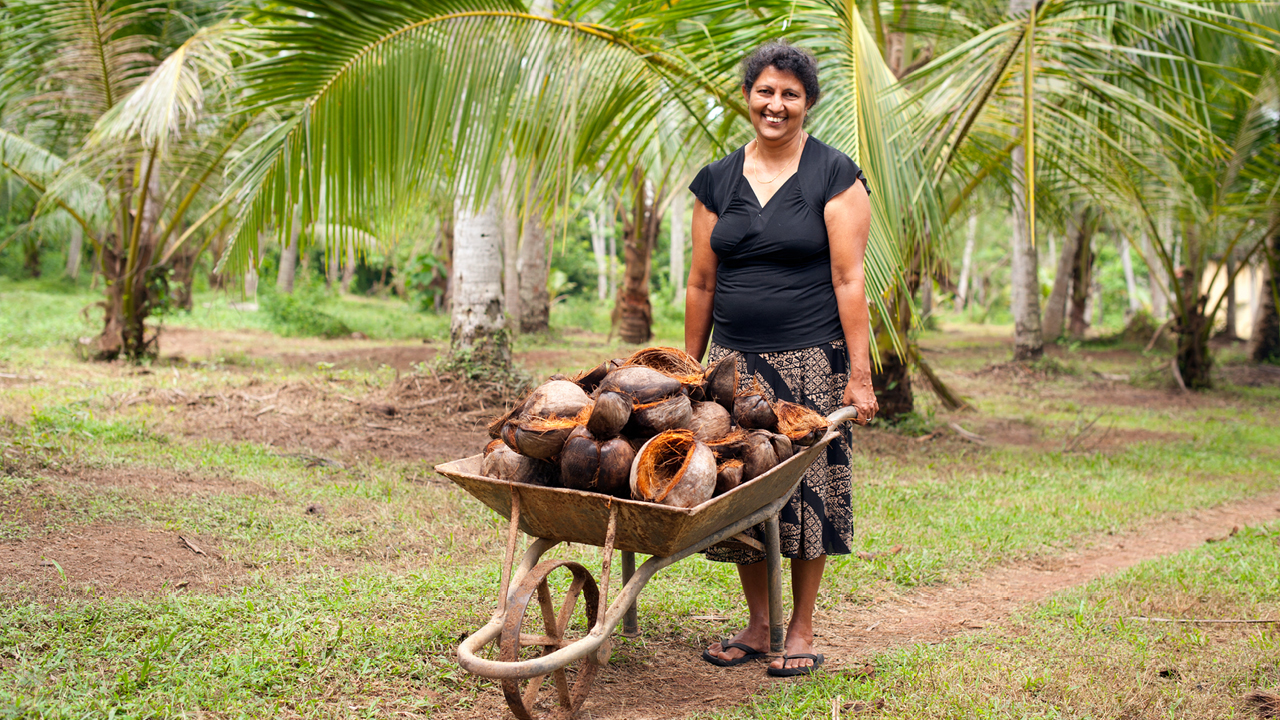
I’ll be the first to admit, navigating certifications can make a shopper’s head swirl. Certifications are those official-looking little seals on labels of products from food to cosmetics to clothing to housewares. They all look so authoritative, but are they equally valuable and meaningful? It can take some homework to learn which to prioritize. I am eager to introduce to you one that I find to be the gold standard: “Regenerative Organic Certified®.”
Certifications are a type of language to communicate to consumers what sorts of practices, quality, and transparency have gone into the products on store shelves. Many certifications are strong and substantive – Dr. Bronner’s holds quite a few. Others are little more than pretty artwork. Strong certifications require independent, third-party inspectors analyzing a product or manufacturer for specified standards. The two key factors are independent inspectors and a set of strong standards.
Table of Contents:
- Dr. Bronner’s certification journey
- Regenerative Organic Certification is comprehensive and holistic
- The three pillars of Regenerative Organic Agriculture
- Gold, silver, and bronze certification benchmarks
- What you can do to help heal the earth
- Regenerative organic agriculture brings hope and solutions
Dr. Bronner’s certification journey
Certifications in personal care have undergone a long journey that Dr. Bronner’s has been part of from the get-go. Along the way, we’ve celebrated various milestones, while knowing there was still much further to go.
I remember Dr. Bronner’s battle for organic certification, a fantastic “David and Goliath” story in itself. That was back when there were no enforced organic standards for personal care products, so Dr. Bronner’s, under the direction of my brother David Bronner (Dr. Bronner’s CEO – Cosmic Engagement Officer), went and certified under the food standards. This was unheard of: putting food grade oils in soaps!
Dr. Bronner’s received a great big, “But, but, but you can’t DO that!” from the USDA, who wanted to insist that the standards were for food.
David and his cohorts successfully argued that there was no reason they couldn’t take food grade oils and put them in the soaps. Yes, it’s expensive, but without personal care product certifications, how else can we assure consumers that the ingredients we use have been grown with solid organic standards?
On top of this, alongside the Organic Consumers’ Association, Dr. Bronner’s sued competitors who used the word “organic” on their labels while having little or no organic content, a practice referred to as “greenwashing.” The lawsuit was for $1, so it wasn’t about the money. What was at stake was the very meaning of the word “organic,” which was on the verge of plummeting into the ravine of meaninglessness that had already captured the word “natural” (a word which you should always regard with suspicion on a label).
Eventually, the USDA established the National Organic Program (NOP) to create uniform national standards for organically produced agricultural goods. While the program was designed for food and agriculture, it also provided a pathway for personal care products made with agricultural ingredients to be certified to the same standards. The lawsuit was rendered moot when Whole Foods, the largest retail store for natural products, adopted the stance that they would not stock products with unsubstantiated or flimsy organic claims. Every manufacturer wanted their products stocked in Whole Foods, so they complied with Whole Foods’ anti-greenwashing requirements. This was a huge achievement, to be sure, but even then, Dr. Bronner’s knew it wasn’t enough.
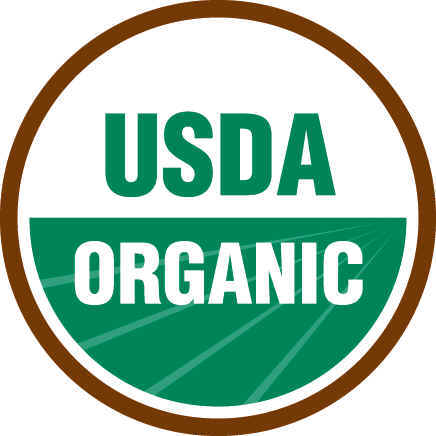
While organic standards are valuable, they do not address everything. They forbid petrochemical and synthetic input, as well as the use of GMOs, but they do not address the reality that great harm has already been done. They allow monocultures (growing a single crop repeatedly on the same land) and are silent on labor practices or animal welfare. A product could be grown organically, but by people who are paid a pittance and treated unfairly and in a way that is destructive to animal habitats and well-being. Separate fair trade and animal treatment certifications are needed to address these issues.
How do you choose between them? One product is certified Organic and another for animal welfare. One may be certified for animal welfare but not fair trade.
Regenerative Organic Certification® is comprehensive and holistic
This is what I like so very much about Regenerative Organic Certification® (ROC™) – It is a comprehensive, multi-faceted certification which takes into consideration all of these realms of good practices. Plus, its measures around restoring soil health can restore degraded agricultural land by returning nutrients to the soil and replenishing depleted organic matter levels. It is one certification to rule them all.
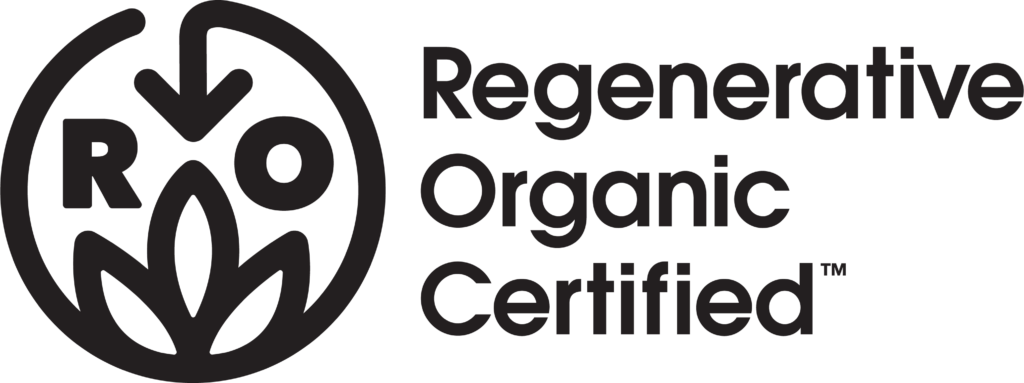
Regenerative Organic Certification (ROC) is a single strong certification that paves a way for simpler labeling and fewer consumer decisions.
I love the word “regenerative.” Breaking it down etymologically, it means “again – birth.” To bring new life back to where it has been but is no longer. To bring the dead back to life. The new certification has been a massive cooperative effort across disciplines from business leaders to researchers to activists to farmers. It is not just a seal to stick on a bottle. Achieving this certification requires a whole new way of farming and producing.
I love the word “regenerative.” Breaking it down etymologically, it means “again – birth.” To bring new life back to where it has been but is no longer. To bring the dead back to life.
Regenerative organic methodologies take aim at conventional agricultural practices which have over the past half century or more depleted much of our land. Current common practices – such as plant and animal monocultures, overuse of synthetic fertilizers and pesticides, intensive tillage, and overuse of land – have shortsightedly aimed to increase production and decrease human effort for the sake of near-term gains, with little thought to how the land is going to continue to feed its people for years to come. It has reduced nutrient-dense topsoil, destroyed bee colonies essential for crop pollination, created dead zones in our river deltas from fertilizer run-off, and required ever intensive amounts of fertilizer and pesticide input. It has created unsustainable, dead-end systems for land, people, and animals.
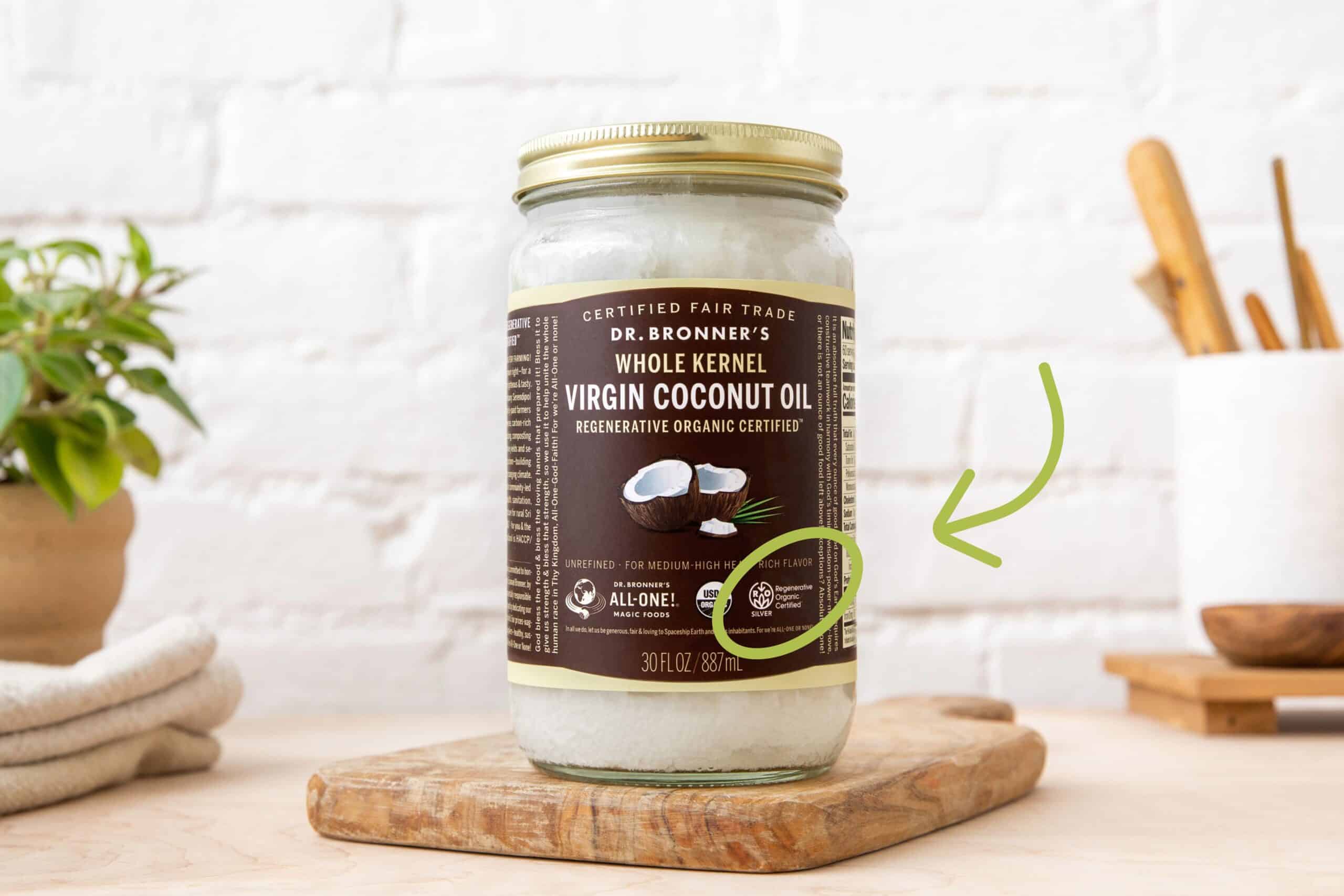
The three pillars of Regenerative Organic Agriculture
Regenerative organic agriculture is a holistic approach to farming that stands on three pillars: restore soil health, promote animal welfare, establish social fairness. Regenerative organic agriculture acknowledges the interconnectedness of all things. Rather than trying to sever these connections, the principles take advantage of them. What harms one aspect, harms all. What benefits one aspect, benefits all.
Pillar #1: Restore soil health
- Cover crops (in particular, nitrogen-fixing legumes), biodiversity, and crop rotation build organic soil matter and prevent soil erosion, as well as help control weeds and pests.
- Conservation tillage reduces soil disturbance and maintains soil microbial communities and structure, while preventing carbon loss into the atmosphere.
- Rotational grazing grass-fed and finished cattle through pasture in paddocks allows pastures periods of rest between grazing. Furthermore, ruminants can fertilize fields with their manure.
- The use of compost, manure, mulch, and organic waste, while leaving out any synthetic fertilizers achieves self-sufficiency in soil fertility.
- Chemical pesticides and deforestation are not allowed.
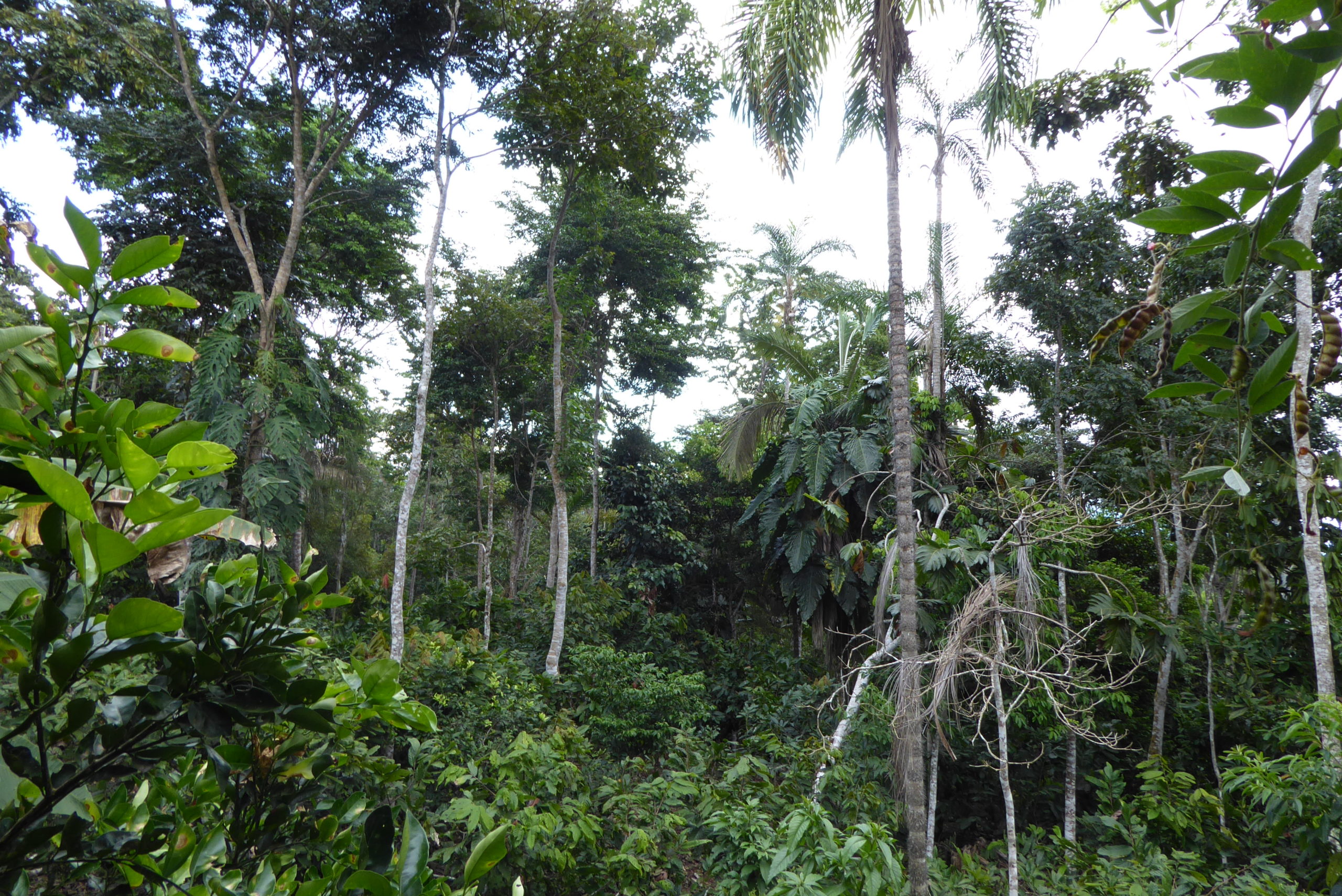
Pillar #2: Promote animal welfare
- Confined Animal Feeding Operations (CAFOs), defined by the USDA as “a farm in which animals are raised in confinement that has over 1,000 animal units confined for over 45 days a year” are prohibited.
- Animals are free from hunger and thirst, given ready access to fresh water and a diet that maintains their health and vigor.
- Animals are free from discomfort, meaning that they are provided with an appropriate environment including shelter and a comfortable resting area.
- Animals are free from pain, injury or disease, meaning adequate disease prevention measures are implemented and proper diagnosis and treatment is provided.
- Animals are free to express normal behaviors by providing sufficient space, proper facilities, and company of the animal’s own kind.
- Animals are free from fear and distress by ensuring that conditions, treatment, and slaughtering systems avoid mental suffering, and transport distances to slaughter facilities are minimized.
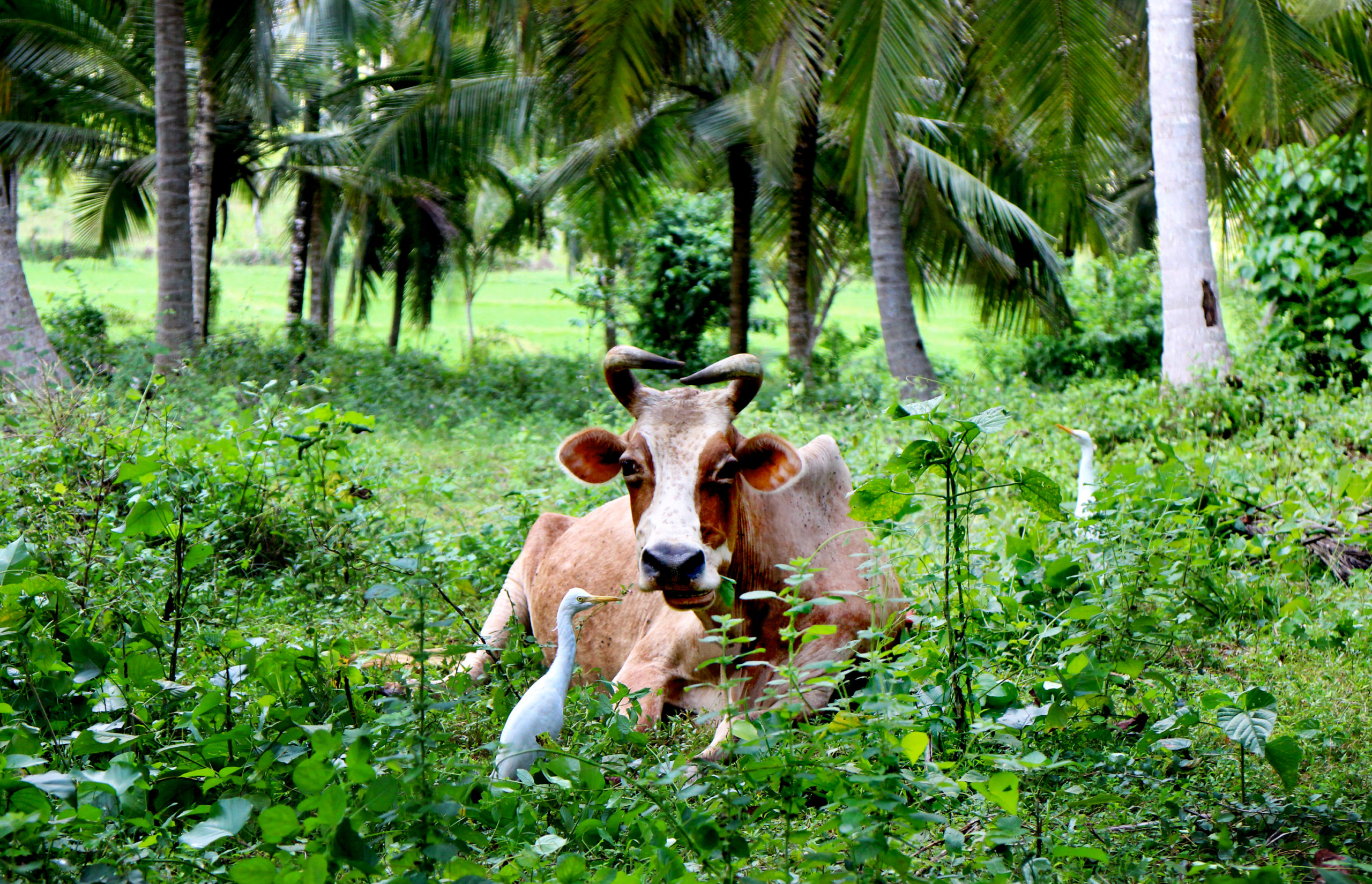
Pillar #3: Establish social fairness
- Hiring practices are equitable with an objective of long-term employment.
- Pay is fair and provides a living wage.
- Working conditions are safe, and workers are free from forced labor, abuse, sexual harassment, and discrimination.
- Child labor is not allowed.
- Education and training expand the capacity and opportunity of workers.

This is not just about “do no harm.” This is about fixing the harm that has been done. It replenishes soil that has been depleted; it returns nutrients from the air into the soil where they belong and do good; it protects waterways that have been filled with toxic run-off.
This is not just about “do no harm.” This is about fixing the harm that has been done.
Gold, silver, and bronze ROC certification benchmarks
Because the ROC standards are complex and high-bar, and take some time to achieve, there are three benchmarks to indicate progress: Bronze, Silver, and Gold.
Bronze
- Less than 50% of producing land is required to undergo and pass the ROC certification and ROC scope.
- Less than 50% of production revenue is required to undergo and pass the ROC certification and ROC scope.
Silver
- More than 50% of producing land is required to undergo and pass the ROC certification and ROC scope.
- More than 50% of production revenue is required to undergo and pass the ROC certification and ROC scope.
Gold
- 100% of producing land is required to undergo and pass the ROC certification and ROC scope.
- 100% of production revenue is required to undergo and pass the ROC certification and ROC scope.
In order to launch, the Regenerative Organic Alliance – of which Dr. Bronner’s was a founding member – tested these standards in 2019 on 21 pilot programs. These programs underwent auditing by independent certifier, NSF International, a public health organization that certifies food, water, and consumer products to rigorous standards of safety and quality. NSF, developed the audit process, trained third-part auditors, and accredited the certifiers. As I mentioned at the outset, independent third-party auditors are essential to meaningful, strong certifications. Dr. Bronner’s submitted three of their ingredients for evaluation of ROC standards: coconut oil (from Serendipol in Sri Lanka), palm oil (from Serendipalm in Ghana), and mint oil (from Pavitramenthe in India) in 2019. Each earned ROC-Silver designation. Since then, Dr. Bronner’s has achieved Regenerative Organic Certification® for more and more of its main ingredients, including for many of the oils in Dr. Bronner’s Liquid & Bar Magic Soaps, and specifically the primary saponified blend of coconut, palm, palm kernel, olive, and hemp seed oils.
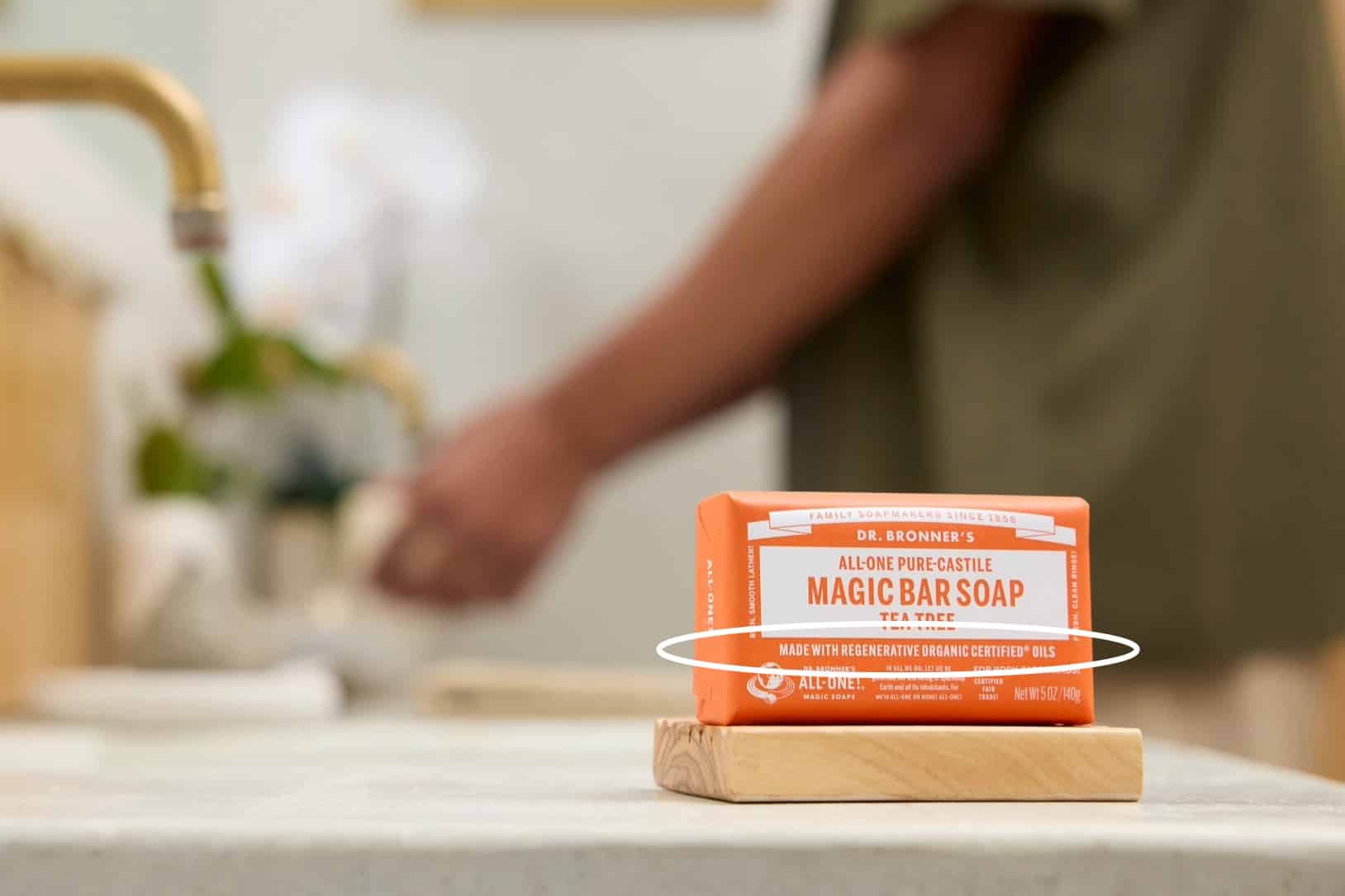
What you can do to help heal the earth
I realize I left you standing in the grocery aisle trying to decide between people, soil, and animals. What are you supposed to do with all this info?
- Look for the seal on single-ingredient products or the statement “Made with Regenerative Organic Ingredients” on multi-ingredient labels. Though the certification only began in 2019, there are already thousands of ROC ingredients and products on the market across food, textiles, and body care.
- Ask for it. The voices of consumers are powerful. Ask your favorite brands to pursue Regenerative Organic Certification and ask your favorite retailers to stock more ROC products.
- Spread the word. Regenerative Organic Certification is a new concept. Help the movement by telling others about it, pointing it out to your friends and spheres, and creating some hubbub around it.
Regenerative organic agriculture brings hope and solutions
It’s easy to recite and lament the world’s problems, which are vast and overwhelming. I am deeply glad that there is still ingenuity, courage, and perseverance in this world to tackle them and bring solutions that we can all be part of. I highly recommend you read the links I provided throughout to see many of these regenerative organic projects in action. It’s exciting stuff!

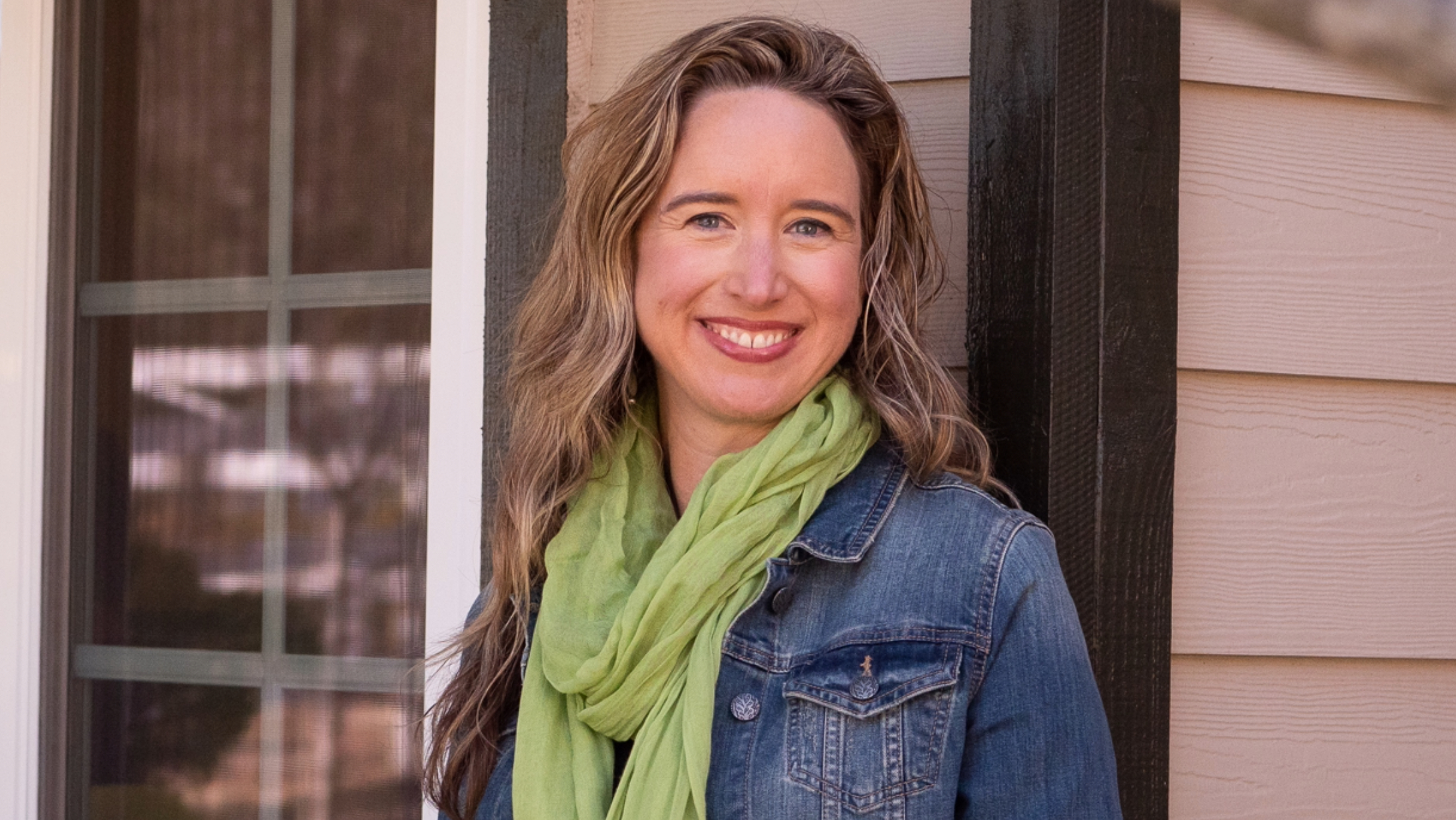
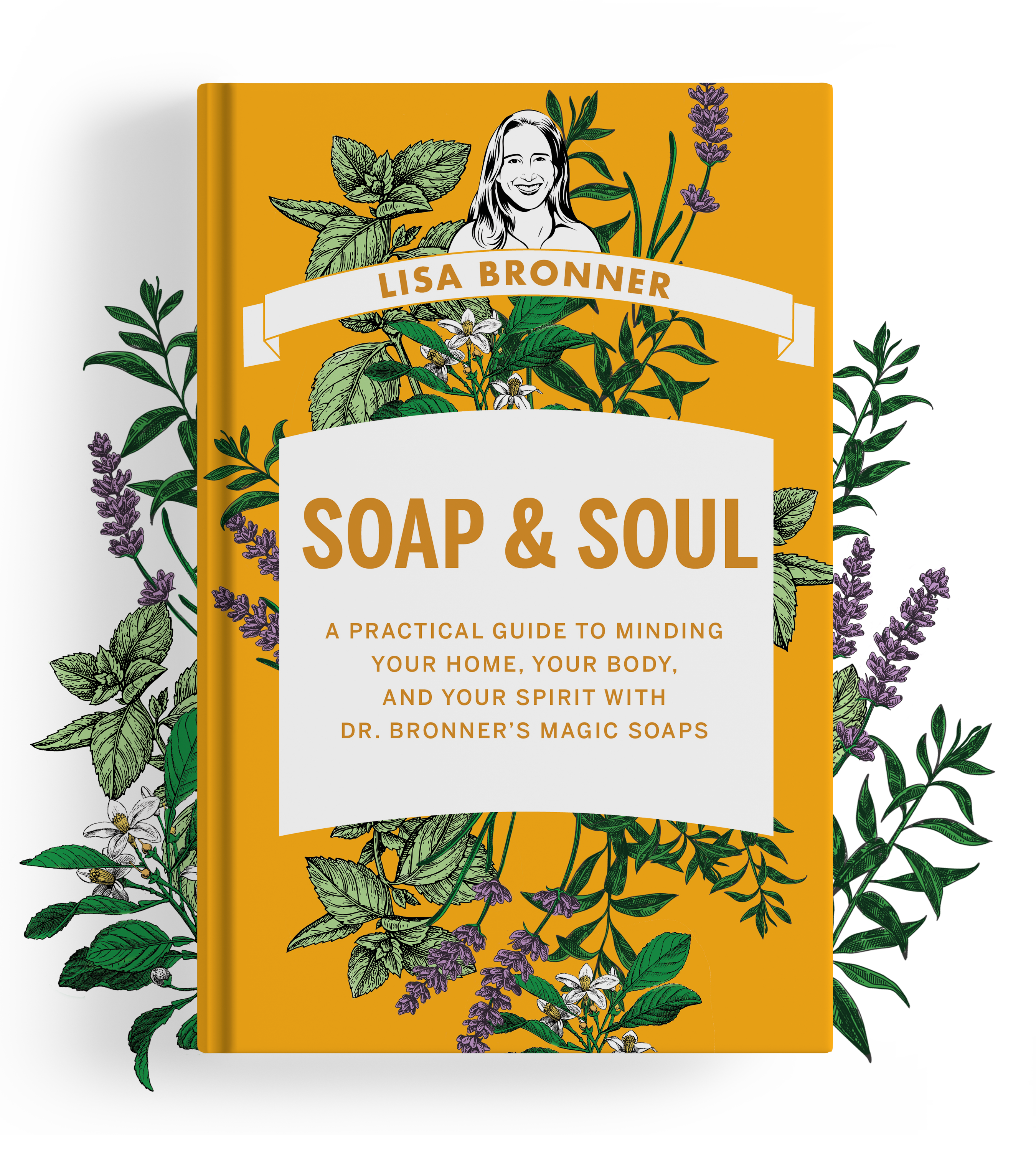
[…] and the environment and have rigorously pursued organic, fair trade, cruelty-free, GMO-free, and Regenerative Organic certifications to verify that ingredients are of the highest quality, free of contaminants, and […]
Hi Lisa,
Regenerative agriculture is such a wonderful concept! I am just curious, when will the lotions, hair creme, shaving cream, sugar soaps, hair rinse, coconut oil and sal suds (and hopefully the chocolate too!) will come to Singapore? I think the hair creme or hair rinse will be really helpful for my hair as it often ends up somewhat frizzy after a wash.
Hi Wu- Unfortunately, we don’t have plans at the moment to launch these products into Singapore, but that doesn’t mean we never will. The Sal Suds, though, you can keep an out for in late 2023!
I really hope the chocolate and coconut oil comes to Singapore. The coconut oil is so versatile and it would be lovely to eat chocolate that is fixing some of the world’s problems!
Can’t wait for the Sal Suds, though!
We applaud and support Bronner’s consistent, persistent stewardship.
Warm regards and Happy Memorial Day,
Thank you for being the change! This is a great effort for sustainability and building a circular economy…It also helps to fight climate change!
This made my day! Many thanks to everyone who worked on this exciting new standard.
I am speechless…I have always loved your company but had no idea of the extent of your passion and commitment! Thank you Dr Bronners! I have a local regenerative farm with a CSA program that I signed up for, but I am thrilled that I will even be able to purchase responsibly farmed products from the store. Thank you for your dedication to our planet!
It is important to expand the regenerative minority lifestyle to the tipping point where the majority gets on board. To that end every Dr. Bronner’s sale helps the task. Funny about little bars of Dr. Bronner’s soap, they sing to us at every sink and wash basin in our house. The song is about connectedness, love and cleanliness. ON another front I couldn’t make my American style organic scones with all the goodies in them without the coconut oil made without the certified practices of regeneration. Eating food that rapes Mother Earth is detestable. Thank you Dr. Bronner’s for connecting the positive dots and getting the word out. We share how to live on this planet.
Hi Ted- Thanks so much for your support! It’s great to hear that you’re in sync with what we are doing – and we’re in sync with what you are doing! Are you willing to share that scone recipe? I adore scones, but I’ve never made them with coconut oil. That sounds fantastic!
Hi Lisa,
I’ve been using Dr. B’s Peppermint Castile soap for over 2 decades and I’m a big follower of the company’s past philanthropic endeavors regarding psychedelic medicines, hemp farming, fair trade etc. I am disappointed that over the last few years I have been unable to purchase merchandise such as t-shirts from the company. I love supporting Dr. B’s since you all take such good care of your employees. Do you know if this will return? I particularly liked the shirts that mentioned conscious capitalism and supported specific causes because I feel it is important to be able to express those messages.
Kindly,
Simone
Hi Simone- Thank you for your support over the years! I love to hear from people who have walked along side us for a while. While t-shirts are fun and great for spreading messages, they are a pretty enormous hassle to make and sell, and they distract us from our main work of producing high quality products and putting the profits towards causes that help the Earth. Very occasionally we have shirts for an event, but it’s not something we do regularly. Instead, we utilize the medium most available to us: a soap label. Perhaps you’ve seen our current Heal Earth label. I very much hope you find ways to express these messages through channels that are available to you. It is the power of one person using their sphere of influence that changes the world.
Great work. Congratulations
I love your products!!I always have your products in my House.
Thank you for everything that you guys doing to give us a good organic products!
God bless all!!
Thank you for your support, Jose!
Ground breaking work here and shows that the Bronner family and the entire company are champions, willing to blaze new paths to regenerate mother earth and the socioeconomic systems that have kept the human race from evolving to the next level.
Thank you for the kind words, Neil.
It is such amazing coconut oil. Everyday, I used this stuff with my lotion.
this is great keep up the good fight
So awesome, will look for this seal. Fantastic effort for this meaningful certification. Love your products, LOVE YOU GUYS! Thank you for forging ahead.
Absolutely awesome! Thank you for persevering in a strive to excellence. I am new to Dr. Bronner’s products but I am using them everyday, when articles are written I am eager to read them. Thank you to making these products so wonderful. I bought soap for my husband and my 92-year-old mother and absolutely love them. I have also been making cleaners with the other Dr. Bronner‘s products and even bought the sugar soap too. I truly am in love with everything. I wish our stores here in Kamloops, British Columbia, Canada would supply more of the Sal Suds since I find everything else is very readily available but Sal Suds is very hard to get. I hope everyone is doing well in your industry. Thank you for looking after them. Stay safe.
Hi Joanne- It’s great to hear your family is finding our products helpful! The distributor in your area may be able to help you locate Sal Suds. You can locate them on the International page of our website, https://www.drbronner.com/wholesale/international/.
The information provided is interesting but I forsee a problem for myself and many others in my situation: I’m a senior retired person and would, if I could, buy everything organic. It’s not possible. I simply can’t afford it. I live in a city apartment so neither can I grow even some of what I need (no community garden plots around here!) The whole regenerative movement is headed in the proper and very necessary direction but, in the end, the prices will soar even higher than organic merchandise. I wish I had an answer but I doubt there is one.
Hi Bonnie- I very much hear what you’re saying. Initially, while ROC items are rare, there will be a premium on them. However, as happened with organic, as RO certified products become more common, and there is greater competitions between brands who have ROC, the prices will come down. Even though you may not be able to support through the purchasing, you can still support by spreading the word about them. Consumer awareness and demand will be the driving factor behind the success of ROC and all the benefits it brings.